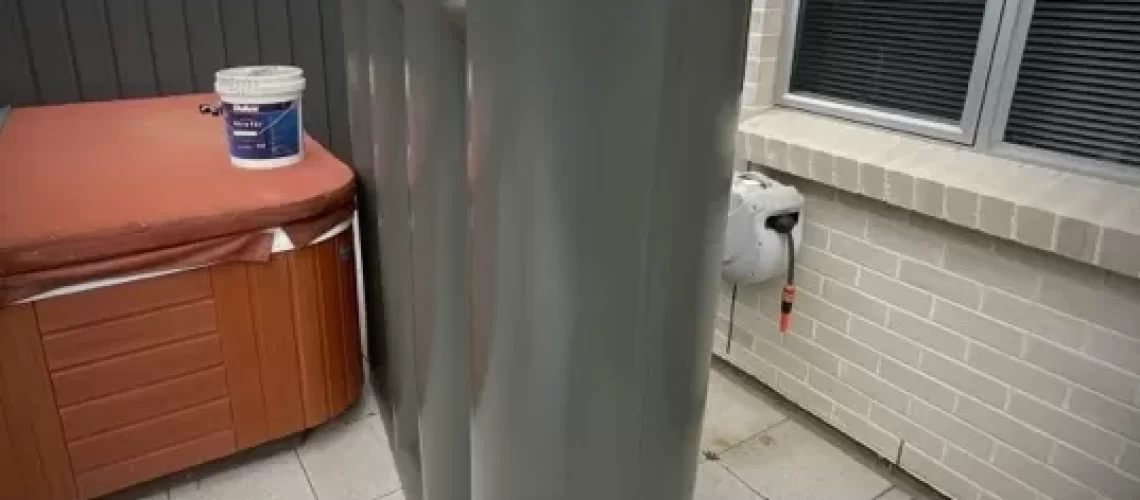A water tank installed on your property is more than just a storage vessel; it’s a valuable asset that comes with a myriad of advantages that span from convenience to sustainability. In today’s world, where water scarcity and unpredictable supply are becoming increasingly common, having a water tank can make a significant difference in maintaining a comfortable and functional lifestyle.
Understanding The Importance of Water Tank in your
One of the foremost advantages of having a water tank on your property is the assurance of a consistent water supply. Municipal water systems are susceptible to disruptions due to maintenance work, pipe leaks, or unexpected outages. With a water tank in place, you’re equipped with a buffer that ensures you’ll always have water available for essential needs. Whether it’s for drinking, cooking, bathing, or cleaning, you won’t have to worry about being caught off-guard by sudden water shortages. This advantage is particularly vital in regions prone to droughts or in rural areas where water infrastructure might be less developed. In these scenarios, a water tank becomes a lifeline, providing a reliable water source to rely on when municipal systems falter.

A water tank fosters sustainability by facilitating rainwater harvesting. Instead of allowing rainwater to run off paved surfaces and into drains, you can collect it in your tank for future use. This practice not only conserves water but also reduces the burden on local water sources. Rainwater, once collected and stored, can be utilized for various non-potable purposes like irrigating gardens, flushing toilets, and even washing cars. By employing this strategy, you contribute to reducing the demand for treated water, which in turn lessens the strain on water treatment facilities and energy-intensive pumping systems. This eco-friendly approach to water management helps mitigate the impact of water scarcity on both your property and the larger community.
In addition to environmental benefits, having a water tank can lead to financial savings over time. While there’s an upfront cost to installing a tank, the long-term advantages outweigh this initial investment. By relying on rainwater for outdoor tasks such as watering plants or cleaning, you can noticeably lower your water bill. Furthermore, during periods of peak demand or water scarcity, municipal water prices tend to rise, and having your stored water means you’re shielded from these price fluctuations. The potential to save on utility costs and reduce reliance on external water sources offers a tangible return on your investment in the water tank.
When selecting a water tank type in Australia, it’s important to consider factors such as the intended use, available space, budget, and local regulations. Each type of water tank has its own advantages and considerations, so choosing the right one will depend on your specific needs and circumstances.
A local adelaide plumber, like the Fawcett Plumbing can give you professional advice on what water tanks will suit your requirements.
There are various types of water tanks available to cater to different needs and preferences, considering factors such as water storage capacity, space availability, and intended use. Here are some of the different types of water tanks:
Polyethylene Water Tanks: These tanks are made from durable and lightweight polyethylene plastic. They come in a range of sizes, shapes, and colors, making them versatile for both above-ground and underground installations. Polyethylene tanks are resistant to corrosion, UV rays, and chemical degradation, making them suitable for various water storage purposes.
Steel Water Tanks: Steel tanks are known for their robustness and longevity. They can be made from galvanized steel or stainless steel. Galvanized steel tanks are coated with zinc to prevent rusting, while stainless steel tanks are highly resistant to corrosion. Steel tanks are often used for larger water storage needs, such as on farms or commercial properties.
Concrete Water Tanks: Concrete tanks are durable and well-suited for large-scale water storage. They can be installed above ground or buried below the surface. Concrete tanks are often used in rural areas, agricultural settings, or places with limited access to water supply infrastructure.
Bladder Tanks: Bladder tanks are flexible, collapsible containers that can be installed in various spaces, including basements, crawl spaces, or under decks. They are particularly useful for temporary water storage, emergency situations, or when space is limited. Bladder tanks can be easily transported and set up as needed.
Underground Water Tanks: These tanks are designed to be installed below the ground, providing a space-saving solution while still offering a substantial water storage capacity. They can be made from materials like polyethylene or concrete and are often used in urban areas where space is at a premium.
Slimline Water Tanks: Slimline tanks are designed for narrow spaces, such as along the side of a building or in tight corners. They offer a sleek and space-efficient solution for urban and suburban settings. Slimline tanks can be made from polyethylene or steel and are available in various capacities.
Modular Water Tanks: Modular tanks are made up of interconnected modules that can be assembled to create a larger storage system. They are flexible in terms of capacity and can be customized to fit the available space. Modular tanks are often used for rainwater harvesting and stormwater management projects.
Fiberglass Water Tanks: Fiberglass tanks are corrosion-resistant and lightweight, making them suitable for various water storage needs. They are often used in commercial and industrial applications where chemical resistance is important.
Round Water Tanks: Round tanks are one of the most common shapes and are available in a wide range of sizes. They are versatile and can be used for various purposes, including rainwater harvesting, irrigation, and household water supply.
Raised Water Tanks: Raised tanks are often elevated on stands or platforms, allowing gravity to assist in water distribution. They are commonly used in rural areas and on farms for supplying water to livestock or for irrigation.
Need a water tank installed in your property? Call Fawcett Plumbing on 1300 328 238 or 0414 83 55 66.







